16 start with N start with N
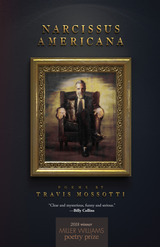
Winner, 2018 Miller Williams Poetry Prize
Narcissus Americana sings and scraps and wrestles its way across various landscapes—abandoned quarries, art museums, lavish homes, and tar pits—in a quest to attain a more complex vision of what it means to be upwardly mobile.
These poems question the usefulness of wealth and ownership as markers of success. Taking wine fridges and fake flowers as emblems of capitalism’s failure to assuage human loneliness, the speakers in these poems find joy in shared meals and glasses of wine, and use moments of mutual attention to challenge notions of class in America. Intimacy is on display in “Cruising Altitude,” where the speaker finds a sublime communion between two disparate worldviews during an in-flight conversation with his father:
I ask if his certainty about humanity’s course gives
his life some kind of purpose. He doesn’t sleep well.
I know this. I quote Yeats. He quotes scripture.
Light balances on the wing and casts its yellow spell. . . .
Sharply written, and with an eye for form, these poems engage with heavy inquiry but also know better than to take themselves too seriously, making it possible for, say, dungeons to share space with donuts, as in the poem “Rancho La Brea.”
Mossotti’s timely book invites the reader to traverse America, and see the nation anew, on a journey marked simultaneously by critical scrutiny and deep affection.
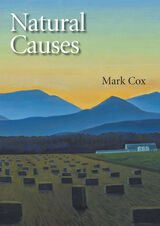
Mark Cox’s youthful bravado has given way in these poems to an assured sense of understatement. The weight of fatherhood, the loss of a grandmother, the fear of loneliness—these are the details around which Cox plumbs the depths of mortality and memory.
Fully comfortable with the domestic tableau from which he writes, this is a poet never complacent. The penchants for metaphor and the resonant turn of phrase that informed Cox’s earlier work remain as vibrant as ever, indeed are heightened, as he masterfully affirms and celebrates the range of familial complexity and human connectedness.
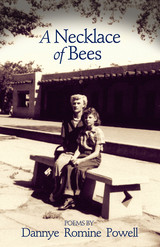
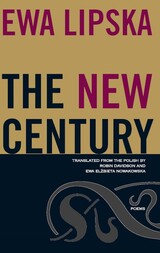
Since the publication of her first book in 1967, Ewa Lipska has been among the most acclaimed of contemporary Polish poets. Yet, to date she has not enjoyed the same popularity in the United States as her fellow Poles Wislawa Szymborska, Czeslaw Milosz, and her contemporary Adam Zagajewski. The New Century: Poems, a selection of her recent work, introduces to an American audience the work of an underappreciated master.
Although Lipska’s work displays an acute awareness of history and politics, she’s nonetheless most concerned with individual experience and the most difficult philosophical questions of evil. Lipska is capable of being awed by beauty despite the deep pessimism that flows through her poems, including the failure of language itself to have any ameliorative effect on human experience.
Surreal, skeptical, and laced with wit, Lipska’s poetry, like that of Milosz and Szymborska, seems to effortlessly achieve a kind of hard-won and gracefully wielded authority that tells us something essential about the legacies of the twentieth century’s horrors.

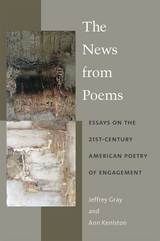
The News from Poems brings together newly commissioned essays by eminent poets and scholars of poetry and serves as a companion volume to an earlier anthology of engaged poetry compiled by the editors. Essays by Bob Perelman, Steven Gould Axelrod, Tony Hoagland, Eleanor Wilner, and others reveal how recent poetry has redefined our ideas of politics, authorship, identity, and poetics.
The volume showcases the diversity of contemporary American poetry, discussing mainstream and experimental poets, including some whose work has sparked significant controversy. These and other poets of our time, the volume suggests, are engaged not only with public events and topics but also with new ways of imagining subjectivity, otherness, and poetry itself.
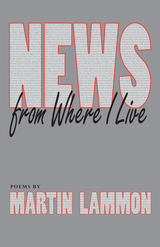
Winner of the eighth annual Arkansas Poetry Award, Martin Lammon writes poems that deal fearlessly and directly with their subjects. Tenderness, complexity, compassion, reverence, and condemnation are all within his range.
Writing of love, he can speak broadly and universally of the heart, yet in the same poem, he can intricately describe a woman’s hand, a fire on a beach, or the hollows around a lover’s eye. Even when he works in the voice of a suicide, his precision can be devastating, as in these lines: “When you lie beside me under stars, each needlepoint / of light pricks my bare arms.”
With equal ease, Lammon travels across miles, cultures, and time, writing of kilns and potters in Japan, long-dead Eskimos in Alaska, or Blue Hole Cave in Pennsylvania.
Full of grace and candor, these poems pursue the stories that shimmer behind the day’s headlines, seeking the spirit at stake in the “lives beside [our] own whose secrets are worth loving.”
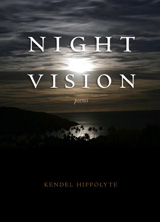
it is difficult to see through it. And yet we must
or we become it, become nothing else but history.
It is this challenge, laid down in the powerful title poem of this collection, which Kendel Hippolyte takes up in Night Vision. And the history that Hippolyte penetrates is a history of the change overtaking the island of St. Lucia. As town becomes city and city spreads like a cancer, the poet's searching verse finds among the waste of humanity, nature, and culture a microcosm of the transforming Caribbean-from tradition, community, rooted identity, to social fragmentation, isolation, uncertainty. And yet, in the personal, away from the daytime public glare, Night Vision also finds the possibility of renewal. Engaging society and self, the poet's dialogue is conducted in a range of poetic voices and styles-the traditional forms of sonnet, villanelle, triolet, echo poem, as well as dramatic monologues in Caribbean English idioms and rhythms of speech; poems written to the metrics of blues and rap alongside free verse poems that expand in long-breath incantatory lines and contract in miniaturist forms as concise as graffiti. The joyful linguistic energy of the poems is perhaps what makes them, and us, look beyond the glaring reality they contemplate to a more hopeful, if nighttime, vision.
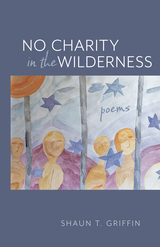
Griffin has spent many decades in the high desert trying to find the way forward—when what he knows has been challenged and still there is breath on the horizon. One day an ancient Chinese poet comes to visit: "Snow deepens/ to quiet what I once believed, and Wang Wei stoops from the spine:/ this is how you become silence." Even if you doubt the old poet's counsel, like Griffin, you want to journey with him into the wilderness.
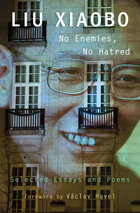
When the Nobel Peace Prize was awarded on December 10, 2010, its recipient, Liu Xiaobo, was in Jinzhou Prison, serving an eleven-year sentence for what Beijing called “incitement to subvert state power.” In Oslo, actress Liv Ullmann read a long statement the activist had prepared for his 2009 trial. It read in part: “I stand by the convictions I expressed in my ‘June Second Hunger Strike Declaration’ twenty years ago—I have no enemies and no hatred. None of the police who monitored, arrested, and interrogated me, none of the prosecutors who indicted me, and none of the judges who judged me are my enemies.”
That statement is one of the pieces in this book, which includes writings spanning two decades, providing insight into all aspects of Chinese life. These works not only chronicle a leading dissident’s struggle against tyranny but enrich the record of universal longing for freedom and dignity. Liu speaks pragmatically, yet with deep-seated passion, about peasant land disputes, the Han Chinese in Tibet, child slavery, the CCP’s Olympic strategy, the Internet in China, the contemporary craze for Confucius, and the Tiananmen massacre. Also presented are poems written for his wife, Liu Xia, public documents, and a foreword by Václav Havel.
This collection is an aid to reflection for Western readers who might take for granted the values Liu has dedicated his life to achieving for his homeland.
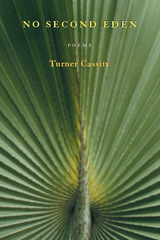
If you think that Turner Cassity has mellowed or slowed down since the 1998 release of his selected poems, The Destructive Element, think again. In No Second Eden Cassity is back more Swiftian than ever. Among the targets reduced to ruin are countertenors, parole boards, the French Symbolists, calendar reformers, the Yale Divinity School, and the cult of Elvis. Without turning a blind eye, he even extends a toast to Wernher von Braun.
Surprisingly, there is a poem about the Mississippi in which Cassity grew up. Unsurprisingly, it is a vision quite unlike others of that state. Its chilly and amusing precision is about as far from Southern Gothic as you can get, although elsewhere there are faint hints of a failed Good Ole Boy. Indeed, the final poems in the collection are a bit more personal than one expects of this writer.
As rigorous in form as they are in feeling, the poems of No Second Eden are not for those with preconceived ideas of poetry or its purpose. Early in Cassity’s career, James Merrill described Cassity’s work as “an opera house in the jungle.” True so far as it goes, but he might also have called it the jungle in the opera house: a glimpse at the savagery behind every façade.
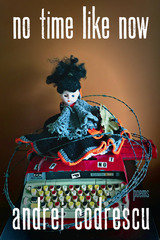
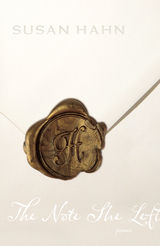
Hahn’s new collection wrestles with the elemental and enduring challenges of the human condition: What can we use from our spiritual heritage? How should we find relief? How, after it all, do we live? The poems are presented as a letter to the world from a woman preparing to leave it. In four sections—“The Bells,” “The Crosses,” “Widdershins,” and “Afterwor(l)d”—she contrasts the hope against the dark that is embodied by an amulet or cross with the abased resignation of torture, failed prayers, and witchcraft. Though Hahn’s vision is a dark one, its dramatic emotional depth speaks to a human power that, though damaged, can still engage.
from The Crosses (V)
Cross my fingers, cross my heart,
arms extended, legs together, not apart,
I make of myself a cross.
In my pockets bright blue beads,
small clay gods, scarabs,
four-leaf clovers, bejewelled mezuzahs.
In my hat cockleshells
to exorcize the demons,
to keep hidden the seventh chakra,
the tonsure, the bald compulsion.
Cross my fingers, cross my heart,
arms extended, legs together, not apart.
In my ears little bells of confusion,
to frighten away eyes of the evil.
On my breast a foul sachet
to repel the lick of the Devil.
Cross my fingers, cross my heart.
In my window a glass witch ball
to guard against the shatter
from intruders.
Cross my fingers.
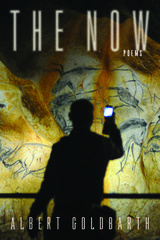
Between poems that consider the disappearance of language in an age of digital/binary communication, and poems that mourn the disappearance of fellow poets and artists, this collection attempts to stand on a nano-second that looks both backward and forward in time: the ever-shifting "now."
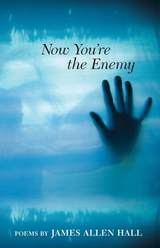
A family in the aftermath of violence These raw and powerful poems have at their heart the charged, archetypal figure of the mother. Conflicted by the twin desires of self-destruction and self-preservation, this mother is both terrible and beautiful. This compassionate, nervy collection of poems shows a family in the aftermath of violence. James Allen Hall explores themes of loss, the intersection of grief and desire, and the ways in which history, art, and politics shape the self. We meet the speaker's mother in many guises-she is the rogue Republic of Texas, the titular character of Rosemary's Baby, a nineteenth century artist's model, a fake entry in an encyclopedia, the lost queen of King Lear. With clarity, wit, and compassion, the speaker discovers the facets of his mother-her own abuse, her years of adultery, her struggle to remain independent-so that he may come to terms with his own sexuality. By seeing his mother in these guises, the speaker understands identity as it develops along and is reclaimed from the most repressive of social margins. Hall's poems twine the autobiographical impulse with a deeper emotional, somewhat surreal, temperament. This is a book as much about the way we tell our stories as it is about the stories we tell. Now You're the Enemy negotiates narrative in order to refashion the self-as a way to survive, to learn the redemptive power of love.
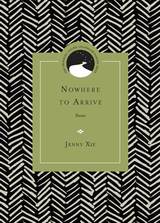
At the chapbook's center are two long poems, titled "Phnom Penh Diptych: Wet Season" and "Phnom Penh Diptych: Dry Season," that examine the escapist narratives that draw tourists and expatriates to Cambodia, and the speaker’s own privileged positioning.
On a formal level, the poems in Nowhere to Arrive make room for the unsaid and that which cannot be articulated. Here, we have a vocabulary of silence alongside stark imagistic juxtapositions, poems that celebrate compression and the force of paratactic constructions. Attentiveness and concentration emerge as virtues, as the speaker surveys the vast territory of the present with a wakeful gaze.
READERS
Browse our collection.
PUBLISHERS
See BiblioVault's publisher services.
STUDENT SERVICES
Files for college accessibility offices.
UChicago Accessibility Resources
home | accessibility | search | about | contact us
BiblioVault ® 2001 - 2024
The University of Chicago Press









